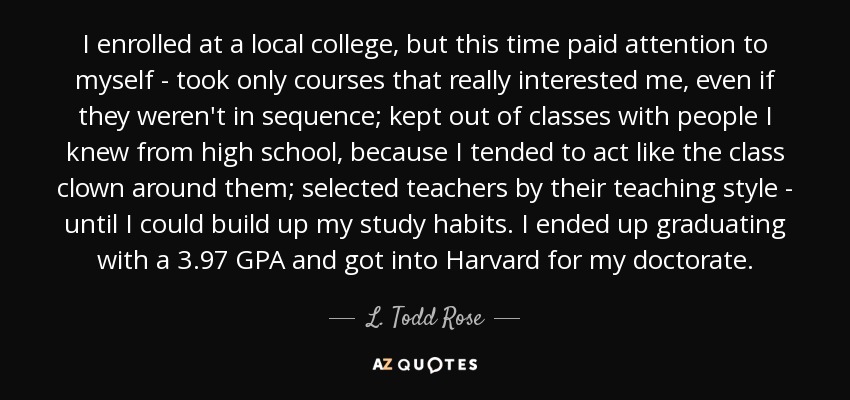Graduates Quotes - Page 27
-
-
 I enrolled at a local college, but this time paid attention to myself - took only courses that really interested me, even if they weren't in sequence; kept out of classes with people I knew from high school, because I tended to act like the class clown around them; selected teachers by their teaching style - until I could build up my study habits. I ended up graduating with a 3.97 GPA and got into Harvard for my doctorate.
I enrolled at a local college, but this time paid attention to myself - took only courses that really interested me, even if they weren't in sequence; kept out of classes with people I knew from high school, because I tended to act like the class clown around them; selected teachers by their teaching style - until I could build up my study habits. I ended up graduating with a 3.97 GPA and got into Harvard for my doctorate.
-
You May Also Like Quotes On:









